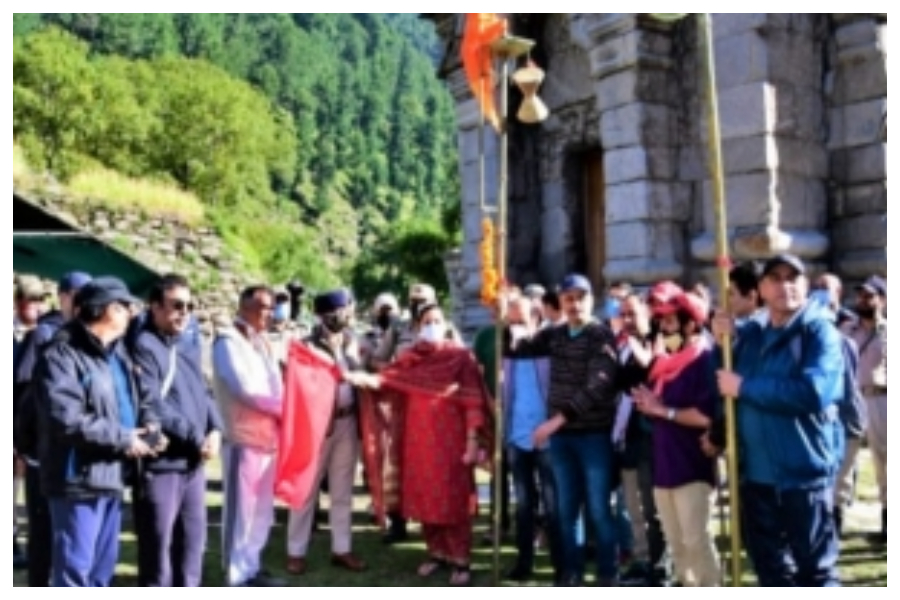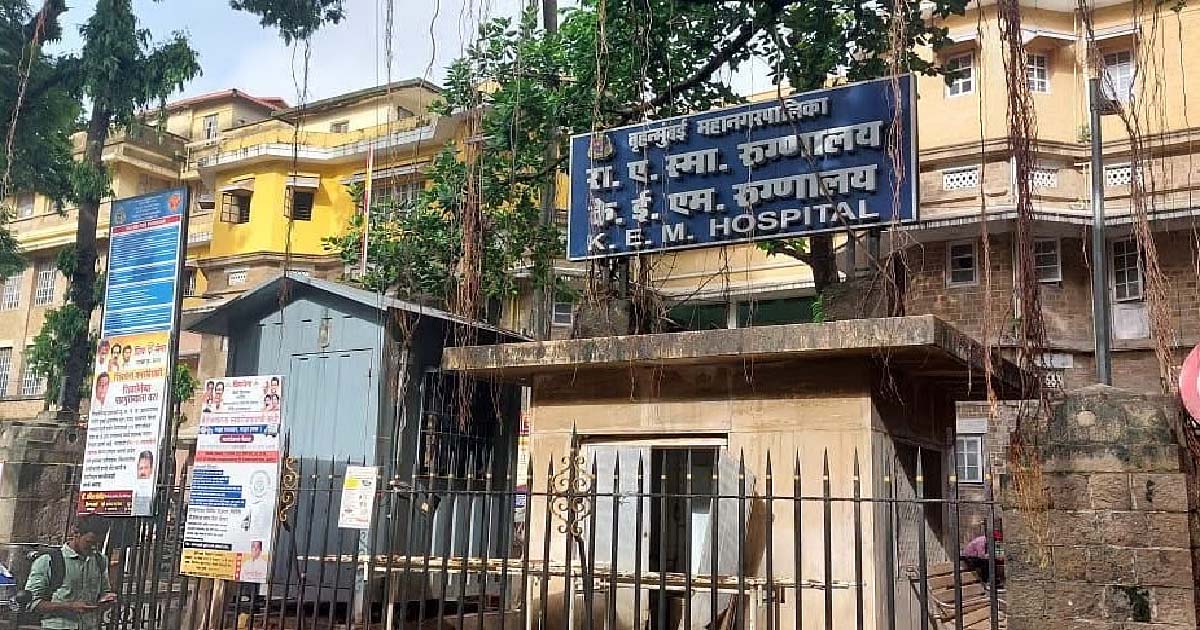National News
Pakistan was responsible for exodus of Kashmiri Pandits from Valley

The 1971 India-Pakistan war was a watershed moment in the ties between the two nations. On June 27, 1972, on the eve of his departure for then Simla for talks with Indian Prime Minister Indira Gandhi, Pakistan President Zulfiqar Ali Bhutto in a broadcast on Radio Pakistan said: “The war we have lost was not of our making. I had warned against it but my warning fell on deaf ears of a power drunk Junta. They recklessly plunged our people into the war and involved us in an intolerable surrender which lost us half our country.”
It took seven years and a coup d’etat for the Pakistani army to reassert itself; and with its recapture of power began a policy of trying to avenge 1971, not by war, but by chipping away at India with a proxy war.
In 1983, the National Conference in Jammu & Kashmir won a second landslide in state elections. But their leader and Chief Minister, Farooq Abdullah, fell out with Indira Gandhi, who used her constitutional levers to dismiss his government the following year.
When Abdullah subsequently patched up with Indira Gandhi, many of his supporters disapproved of the reconciliation. Thus, when fresh elections took place in Jammu & Kashmir in 1987, a significant segment of the National Conference’s traditional voters turned against them.
The outcome, though, did not reflect this. In others words, it is widely believed the results were rigged. The parties that suffered went on to constitute the separatist All Party Hurriyat Conference.
In February 1989, Soviet troops withdrew from Afghanistan. People in India-controlled Kashmir were pummelled with the propaganda that if Pakistan could have defeated the Soviet Union, Indian soldiers would be no match for their Pakistani counterparts in the event of an invasion by the Pakistan army.
Thus, even pro-India Kashmiris became nervous and felt it was better to be on the right side of such a war than the wrong one. It is in this fertile atmosphere of alienation and fear that an uprising occurred in August 1989 in Indian-controlled Kashmir.
During the 1988 to 1992 presidency of George Bush Senior, the US administration placed Pakistan on a watch list of countries potentially sponsoring terrorism, without definitively designating it as a state sponsor of terrorism.
I asked a senior American diplomat posted in Islamabad what persuaded Bush to issue such a caution. He replied, the President had “credible evidence” to do so.
I probed the diplomatist further. He revealed US satellites had picked up movement of Pakistani army trucks delivering weapons close to the Line of Control with India in Kashmir. The weapons had been supplied by western countries to Pakistan for distribution to the Afghan Mujahideen. Instead, they were diverted to Kashmir.
That was the genesis of a proxy war, which included intimidating Kashmiri Pandits and effectively triggering their exodus from the Valley.
During negotiations at the Simla summit, Bhutto floated the idea of the Line of Control in Kashmir being converted into a “Line of Peace”.
General Pervez Musharraf’s formula in 2006 was broadly along similar lines. But then Prime Minister Manmohan Singh’s government ultimately found it difficult to trust a man who was instrumental for the Kargil intrusion in 1999.
It has been the belief in the power structure in Pakistan that militancy in India-controlled Kashmir is justified. However, as the European Union has laid down, where there’s an opportunity to enter office through the ballot box – as there was up to 2019 – violence is unjustified.
The Election Commission of India has largely ensured fair elections in Jammu & Kashmir since the 1990s. In India’s northeastern states, separatist parties have fought elections and formed governments.
The Scottish National Party has achieved the same in Britain. Sinn Fein, which believes in Northern Ireland breaking away from Britain and merging with the Republic of Ireland, has been a constituent in the ruling coalition in Northern Ireland.
The legitimacy of fissiparous forces in Jammu & Kashmir can only be established by them, proving that they indeed enjoy majority support.
In the one and only opinion survey carried out on both sides of the Line of Control in Kashmir — by King’s College London and Chatham House in 2010 — 44 per cent of people in Pakistan-controlled Kashmir wanted independence as opposed to 43 per cent in India-controlled Jammu and Kashmir. Two per cent of people in India-controlled Jammu & Kashmir wanted to join Pakistan, compared to 1 per cent of people in Pakistan-controlled Kashmir.
Such figures may have changed. But India and Pakistan are obliged to sort out their disputes under the Simla Agreement, which states, “The two countries are resolved to settle their differences by peaceful means through bilateral negotiations.”
This Agreement is registered as a Treaty with the United Nations under Article 102 of the UN Charter. Therefore, it is binding on both nations.
National News
Mumbai: BMC-Run KEM Hospital Commissions Ultra-Modern Modular OTs For Heart Transplants And Complex Surgeries

Mumbai, Dec 26: Mumbai’s BMC-run KEM Hospital has strengthened its advanced healthcare infrastructure with the commissioning of ultra-modern steel modular operation theatres (OTs) designed for heart transplants and other complex surgeries. Following the completion of sterilisation protocols, cardiac surgeries have already commenced in the new facility.
The newly installed modular OTs feature steel walls, ceilings, frames and panels, making them resistant to dust, moisture and water. This design significantly improves cleanliness and simplifies sterilisation, thereby reducing the risk of post-operative infections.
“Equipped with laminar airflow systems and HEPA filters, the operation theatres ensure a continuous supply of clean, controlled air by filtering out bacteria, viruses, dust particles and other airborne contaminants,” said hospital officials, adding that the advanced setup will support not only heart transplants but also other organ transplants, surgeries for congenital disorders and complex paediatric procedures.
To further enhance efficiency, especially in emergency organ transplant cases, the hospital has developed special internal connectivity and separate entry points. These allow donor organs to be transported directly to the designated operation theatre, minimising time delays and reducing associated risks.
With this upgrade, KEM Hospital is expected to play a more significant role in organ transplantation and advanced surgical care in Mumbai and across Maharashtra.
Business
Keralites gulped liquor worth over Rs 332 crore during Christmas

Thiruvananthapuram, Dec 26: The Kerala State Beverages Corporation (BEVCO) recorded a sharp surge in liquor sales during the Christmas week, with revenues touching a record Rs 332.62 crore, according to official figures.
The Christmas week sales are calculated for the four days from December 22 to December 25, and officials said this year witnessed a significant jump compared to previous years.
Data shows a 19 per cent increase in sales over the corresponding period last year, underlining a strong festive demand.
The sharpest spike was recorded on Christmas Eve, when liquor sales alone amounted to Rs 114.45 crore.
In comparison, sales on the same day last year stood at Rs 98.98 crore, indicating a substantial year-on-year rise.
Officials attributed the surge not only to the festive season but also to improved consumer facilities introduced by BEVCO over the past year.
The corporation had expanded its premium retail infrastructure, including the launch of new premium counters aimed at offering a better purchasing experience and a wider selection of high-end products.
Premium outlets were recently opened in key centres such as Thrissur and Kozhikode, and officials said these had a positive impact on overall sales figures.
The enhanced facilities helped reduce crowding at regular outlets and encouraged higher-value purchases, contributing to the increase in revenue.
The Corporation has traditionally seen a spike in sales during festival periods such as Onam and Christmas, but this year’s figures mark one of the highest Christmas week turnovers recorded by the state-run corporation.
The rise in liquor sales is expected to provide a significant boost to the State exchequer, as the corporation is a major contributor to Kerala’s revenue through taxes and duties.
Liquor is sold through state-run 325 retail outlets.
Studies have shown that around 10 per cent of the 3.30 crore Kerala population are tipplers, including around three lakh women.
In 2024–25, Kerala’s liquor sales rose to Rs 19,730.66 crore, up from Rs 19,069.27 crore in 2023–24, marking an annual growth of 3.5 per cent.
Business
Govt drive returns Rs 2,000 crore unclaimed savings to rightful owners

New Delhi, Dec 26: The government has succeeded in returning to the rightful owners a total amount of nearly Rs 2,000 crore that was stuck as “unclaimed savings” across banks, insurance, mutual funds, dividends, shares, and retirement benefits held within the regulated financial system, according to an official statement issued on Friday.
The funds have been restored through the Centre’s “Your Money, Your Right” nationwide awareness and facilitation initiative, launched in October 2025 to help citizens identify and reclaim unclaimed financial assets. The initiative is being coordinated by the Finance Ministry’s Department of Financial Services, with financial sector regulators reaching across digital portals with district-level facilitation.
Across generations, Indian families have saved carefully through opening bank accounts, purchasing insurance policies, investing in mutual funds, earning dividends from shares, and setting aside money for retirement. These financial decisions are taken with a hope and responsibility, often to secure children’s education, support healthcare needs, and ensure dignity in old age.
Yet, over time, a significant portion of these hard-earned savings has remained unclaimed. The money has not vanished, nor has it been misused. It lies safely with regulated financial institutions, separated from its rightful owners due to a lack of awareness, outdated records, changes in residence, or missing documentation. In many cases, families are simply unaware that such assets exist.
The volume of unclaimed financial assets in India is significant and spans multiple segments of the formal financial system. Indicative estimates suggest that Indian banks together hold around Rs 78,000 crore in unclaimed deposits. Unclaimed insurance policy proceeds are estimated at nearly Rs 14,000 crore, while unclaimed amounts in mutual funds are about Rs 3,000 crore. In addition, unclaimed dividends account for around Rs 9,000 crore, according to official figures.
Together, these amounts underline the scale of unclaimed savings belonging to citizens that continue to remain unused, despite being securely held within the financial system.
Your Money, Your Right is a nationwide effort to reconnect citizens with these forgotten financial assets and ensure that money that belongs to individuals and families ultimately finds its way back to them.
These unclaimed financial assets arise when money held with financial institutions is not claimed by the account holder or their legal heirs for a prolonged period. Such assets include:
*Bank deposits such as savings accounts, current accounts, fixed deposits, and recurring deposits that have not been operated for ten years or more.
*Insurance policy proceeds that remain unpaid beyond the due date
*Mutual fund redemption proceeds or dividends that could not be credited due to reasons such as a change in bank account, bank account closure, incomplete bank account in records, etc.
*Dividends and shares that remain unclaimed and are transferred to statutory authorities
*Pension and retirement benefits that are not claimed within the normal course
In most cases, assets may become unclaimed because of routine life events such as migration for work, changes in contact details, closure of old bank accounts, or lack of information among family members and legal heirs.
The Government is coordinating with the Reserve Bank of India (RBI), the Insurance Regulatory and Development Authority of India (IRDAI), the Securities and Exchange Board of India (SEBI), the Investor Education and Protection Fund Authority (IEPFA), and the Pension Fund Regulatory and Development Authority (PFRDA) to help citizens identify, access and reclaim financial assets that legally belong to them, using simple processes and transparent systems.
-

 Crime3 years ago
Crime3 years agoClass 10 student jumps to death in Jaipur
-

 Maharashtra1 year ago
Maharashtra1 year agoMumbai Local Train Update: Central Railway’s New Timetable Comes Into Effect; Check Full List Of Revised Timings & Stations
-

 Maharashtra1 year ago
Maharashtra1 year agoMumbai To Go Toll-Free Tonight! Maharashtra Govt Announces Complete Toll Waiver For Light Motor Vehicles At All 5 Entry Points Of City
-

 Maharashtra1 year ago
Maharashtra1 year agoFalse photo of Imtiaz Jaleel’s rally, exposing the fooling conspiracy
-

 National News1 year ago
National News1 year agoMinistry of Railways rolls out Special Drive 4.0 with focus on digitisation, cleanliness, inclusiveness and grievance redressal
-

 Maharashtra1 year ago
Maharashtra1 year agoMaharashtra Elections 2024: Mumbai Metro & BEST Services Extended Till Midnight On Voting Day
-

 National News1 year ago
National News1 year agoJ&K: 4 Jawans Killed, 28 Injured After Bus Carrying BSF Personnel For Poll Duty Falls Into Gorge In Budgam; Terrifying Visuals Surface
-

 Crime1 year ago
Crime1 year agoBaba Siddique Murder: Mumbai Police Unable To Get Lawrence Bishnoi Custody Due To Home Ministry Order, Says Report












